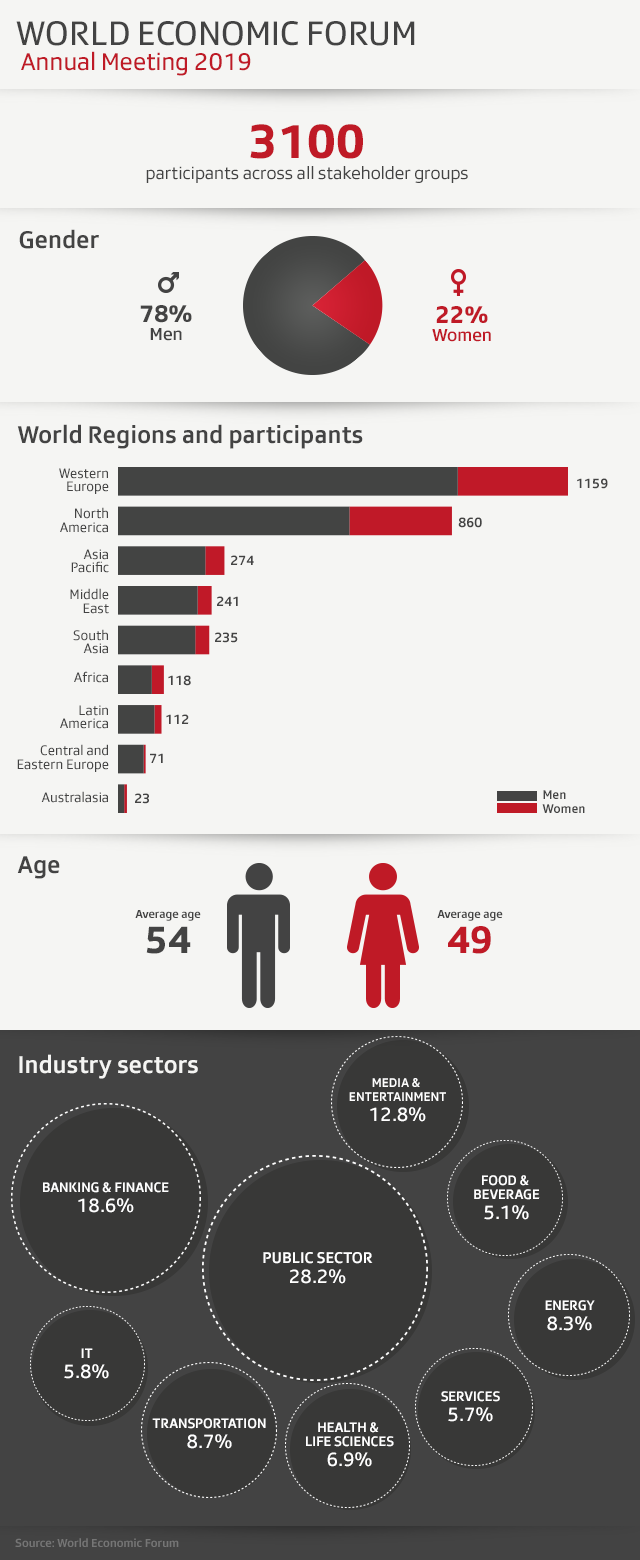
Rising accommodation costs threaten Switzerland’s WEF host status

If the costs of accommodating participants and staff at the World Economic Forum (WEF) annual meeting in Davos continue to rise, the event could be forced to move from Switzerland, its founder Klaus Schwab warns.
The WEF is expected to celebrate its 50th annual meeting in the Swiss mountain resort of Davos next January. In an interview with the German-speaking Südostschweiz External linknewspaper on Saturday, Schwab praised cooperation with the local and cantonal authorities – a “real partnership” which they wish to further develop.
However, the head of the Geneva-based foundation warned that accommodation needs and rising prices could influence where the meeting is held in the future.
“We have recently made clear to the Davos authorities that we need at least 2,800 hotel rooms at acceptable prices and that our employees must be guaranteed accommodation,” Schwab said.
“If we no longer see these conditions fulfilled, we would have to look for another location with a heavy heart. Unfortunately, this would also mean leaving Switzerland, as there is no alternative in terms of conference infrastructure.”
Finding reasonably priced accommodation during the annual meeting is extremely difficult, with residents renting out apartments and rooms at high pricesExternal link, alongside limited, expensive hotel accommodation.
Bigger and bigger
The annual Davos congress has grown exponentially since its first incarnation as the European Management Forum in 1971External link (renamed World Economic Forum in 1987).
In its nearly 50 years of existence, WEF has welcomed many global leaders, industry chiefs and bigwigs from the worlds of civil society, religion, technology and the arts.
The overall budget for organising the event is unclear. Every year, some 3,000 delegates are willing to pay big bucksExternal link for the privilege of listening to debates, networking and deal making. Non-business participants in the meeting — from heads of state to leaders of the arts — do not pay to participate.
A studyExternal link by researchers at the University of St Gallen estimated that the WEF annual meeting in 2017 generated revenue of CHF94 million across Switzerland.
The Swiss government has described the Davos meeting is an “extraordinary event for Switzerland”. It says it offers a unique opportunity within its borders for high-ranking figures to meet and exchange views on global problems and solutions.
To guarantee ground and air security during the annual meeting, the Swiss defence ministry employs up to 5,000 of its staff and a budget of around CHF28 million. The public authorities – federal, cantonal and communal – contribute an additional CHF9 million for police services and other surveillance tasks.


In compliance with the JTI standards
More: SWI swissinfo.ch certified by the Journalism Trust Initiative




























You can find an overview of ongoing debates with our journalists here . Please join us!
If you want to start a conversation about a topic raised in this article or want to report factual errors, email us at english@swissinfo.ch.